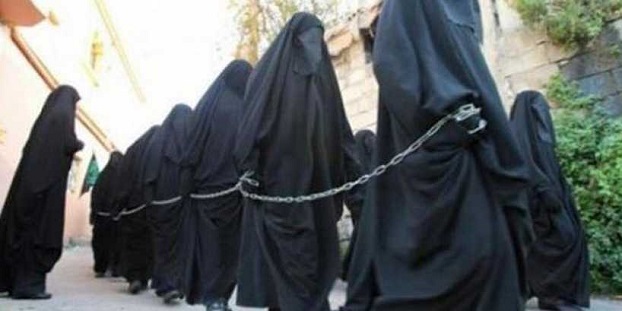Young people, their minds not yet made up, have always been the easiest to recruit, but there’s something different about ISIS poaching the impressionable for extremism, and it’s social networks being repurposed for anti-social behavior. France has been hardest hit, with nearly 1,000 teens and twentysomethings joining the Mideast madness. Two factors overlap many of the cases: The children were headed for careers which could have genuinely helped the world, and they’ve been drawn into the circle of hatred online. We’re all connected now, for better and worse. From Julia Amalia Heyer at Spiegel:
“The number of young people who have become radicalized and have disappeared is rising rapidly. More than 140 families have contacted Bouzar since January 2014.
Radicalization used to be limited to the poor and the uneducated, says Bouzar. Immigrants from Muslim backgrounds were usually the ones who joined jihadist groups. But the situation has changed today, she explains. ‘Now three-quarters of them come from atheist families.’ They include Christians and Jews, and almost all are from the middle class, with some coming from upper-class families, the children of teachers, civil servants and doctors. Bouzar is even familiar with a case involving an elite female university student. It also appears that more and more girls and young women are fantasizing about jihad.
Indoctrination
The Internet and social networks make it easy to indoctrinate young people. In her research, Bouzar discovered that the French-speaking unit of the Al-Nusra Front actually employs headhunters to recruit young women and men.
The process of brainwashing usually follows the same principles, not unlike the approach taken by sects. First the victim, be it a boy or a girl, is isolated from his or her surroundings. The young people are pressured to sever all ties to family and friends. Then the indoctrination begins, through videos about genetically engineered food or alleged conspiracies. The goal is to make the victims believe that the world is evil and that only they have been chosen to make it a better place.
As a result of this brainwashing, the young women and men gradually lose their connection to everyday life and their old identities. Once a new identity has been created, they often see themselves as members of a chosen group of fighters for a better world.
Bouzar has found that the radicalized young women have a common trait: They are all interested in careers in social work or humanitarian aid.”
Tags: Julia Amalia Heyer

